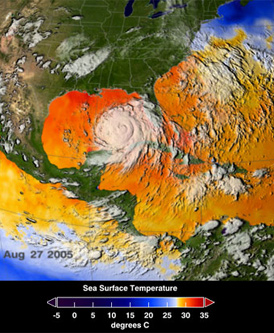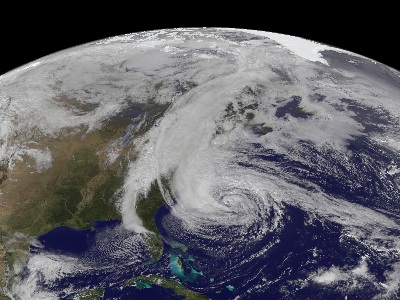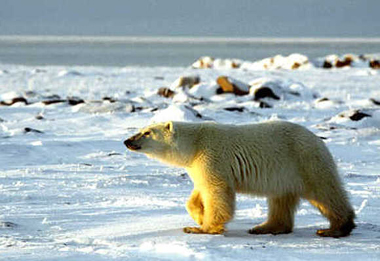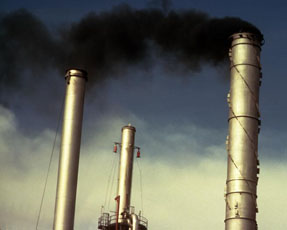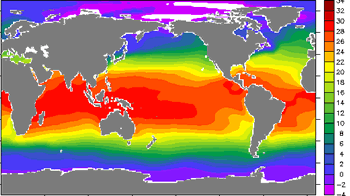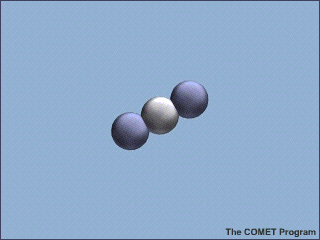Click on image for full size
Courtesy of NASA
Are Hurricanes Becoming Stronger and More Frequent?
In 2004, a record number of hurricanes affected Florida and typhoons struck Japan. A hurricane even formed in a very unusual place, in the South Atlantic Ocean, off the coast of Brazil in 2004. No one had ever witnessed a hurricane in the South Atlantic before.
The U.S. National Oceanic and Atmospheric Administration (NOAA) predicted with a high degree of certainty that the subsequent 2005 Atlantic hurricane season would be above normal as well, with 18-21 named storms. Months later, one of those named storms, Hurricane Katrina, a powerful category 5 storm, devastated the gulf coast of the United States as it passed through.
Hurricanes can be the deadliest, strongest, and costliest storms in the world and they have been more severe than usual in recent years, causing an amazing amount of damage. What’s the cause of these monster storms becoming even more monstrous? Some scientists have identified that the number of hurricanes probably waxes and wanes with a regular and natural cycle. Additionally, other scientists have identified that the strength and length of storms is probably affected by global warming. Both processes might be at work, and reserchers continue their studies so that we can better understand these monsterous storms.
A natural cycle may control the number of storms
There is evidence that the number of storms each year is controlled, at least in part, by a natural 20-40 year cycle. For example, the number of hurricanes each year was less than usual from the mid-1960’s to the mid-1990’s, but since 1995 there have been typically more hurricanes than usual each year. Scientists predict that the number of storms will be higher than normal until about 2015.
Global warming causes stronger storms
As global warming causes oceans to become warmer, and more moisture is held in the atmosphere, the intensity of hurricanes and the amount of rain they produce will likely increase, according to NCAR scientist Kevin Trenbreth among others. There is strong evidence that global warming has been increasing the intensity of hurricanes for over the past few decades.
In the past 30 to 50 years the oceans have warmed about 0.1 degree Fahrenheit. This may not seem like much of a temperature change, but it is quite significant. Think about a pot of water heating on a stove. A small pot of water will heat quickly, while a large pot of water will heat very slowly. This is due to a difference in heat capacity. The oceans have an enormous heat capacity because of their large size, thus, they are like an enormous pot of water, and so it takes a great amount of heat to warm them. The fact that they have warmed significantly in 30 to 50 years is remarkable. And this change appears to be correlated with a remarkable change in the strength and duration of hurricanes.
The warming oceans are correlated with an increase in the intensity of hurricanes. According to MIT scientist Kerry Emmanuel, hurricanes have become 70-80% more powerful over this timeframe. Hurricanes take heat energy from the oceans and convert it into the energy of the storm. Thus, warmer oceans offer more heat energy to hurricanes, allowing them to become stronger storms.


